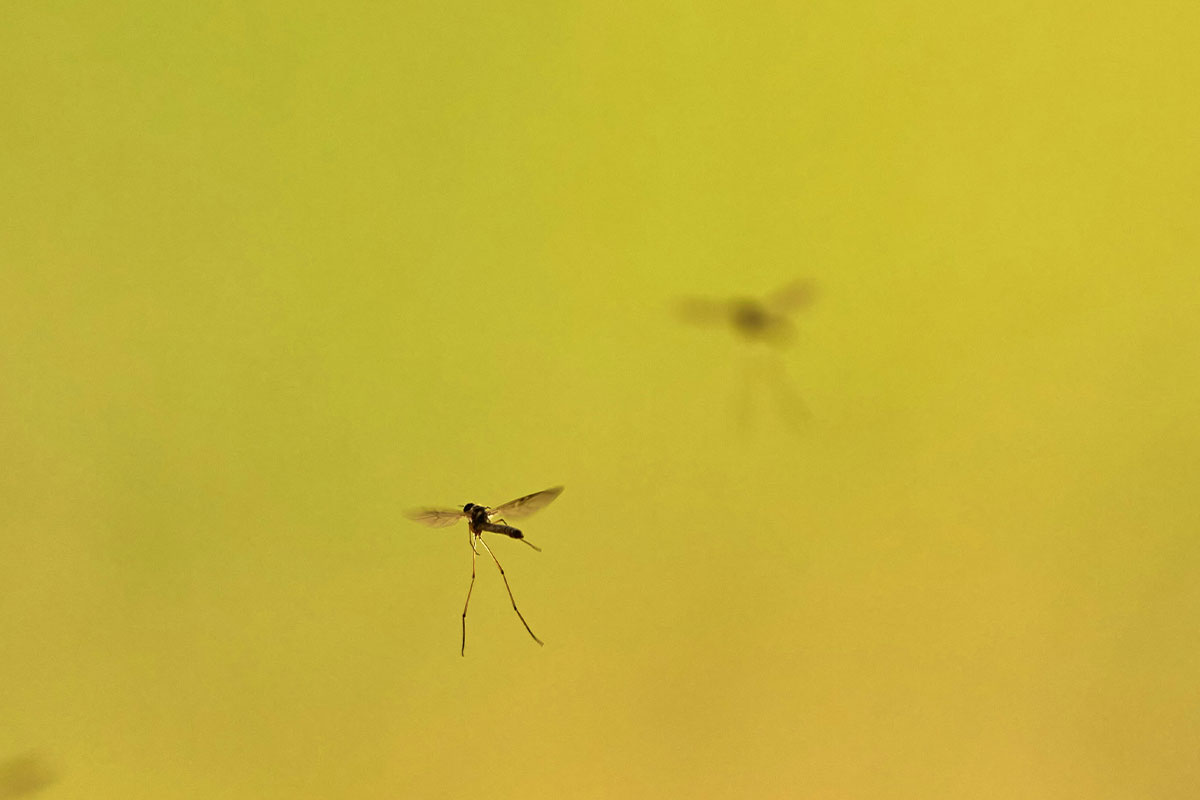West Nile virus reaches the UK: should you be worried?
Warming temperatures and shifting weather patterns are making North European countries increasingly hospitable for mosquito-borne viruses.
- 22 May 2025
- 4 min read
- by Linda Geddes

Genetic traces of West Nile virus have been detected in UK mosquitoes for the first time – one of the northernmost confirmed detections of the virus in Europe to date.
The discovery marks a small, but significant development in the ongoing march of vector-borne diseases to higher latitudes, as climate and ecological conditions shift.
West Nile virus belongs to the same family as yellow fever and dengue, and is similarly spread via mosquito bites.
Most people who catch it show no symptoms, but the infection occasionally triggers serious neurological complications such as encephalitis or meningitis, where the brain or its surrounding membrane becomes inflamed.
There is currently no vaccine against it, although efforts are underway to develop one.
Northwards march
Although West Nile virus most commonly infects birds, human infections have occurred in many countries over the past 50 years, with the largest outbreaks reported in Greece, Israel, Romania, Russia and the US.
The virus has never previously been detected in the UK, although scientists have predicted that climate change will make UK outbreaks more common within the next 20 to 30 years.
Until now, the northernmost European detections have been in birds and horses in northeastern Germany since 2018, while the Netherlands reported its first locally acquired human case of West Nile virus in 2020.
The latest discovery was made as part of a joint surveillance effort by the UK Health Security Agency (UKHSA) and the Animal and Plant Health Authority’s (APHA’s) Real-time Arbovirus Detection and Response (RADAR) project, following the routine monitoring of mosquito populations in Nottinghamshire, in northern England. Fragments of the virus were found in Aedes vexans mosquitoes gathered near the River Idle during July 2023.
Public health risk
“While this is the first detection of West Nile virus in mosquitoes in the UK so far, it is not unexpected, as the virus is already widespread in Europe,” said Dr Meera Chand, UKHSA deputy director for travel health, zoonoses, emerging infections, respiratory and tuberculosis.
“The risk to the general public is currently assessed as very low. Vector research of this kind is designed to give us early warning of potential threats so that we can enhance our disease surveillance and control activities and ensure patients receive appropriate testing.”
Dr Arran Folly, an arbovirologist at APHA and lead of the RADAR project, added: “The detection of West Nile virus in the UK is part of a wider changing landscape, where, in the wake of climate change mosquito-borne diseases are expanding to new areas. Only through continued surveillance can we assess the risk to animal and public health.
“Our primary focus is to understand how viruses move into the country and how they are transmitted. Combined, this can help us identify areas that may be at increased risk of outbreaks.”
Climate change
Aedes vexans mosquitoes are native to the UK and though uncommon, they can occur at high densities in areas that experience summer flooding and poor drainage, including villages along the River Idle near Retford, Nottinghamshire, where the infected mosquitoes were collected.
The insects were pooled into groups of ten for testing, and fragments of West Nile virus genetic material were identified in two of the pools. The other 198 were negative.
“This development is serious, but it is not unexpected,” said Prof James Logan at London School of Hygiene & Tropical Medicine in London, UK. “It does not require public alarm, but it does call for vigilance and investment in long-term preparedness.
“Public health agencies and veterinary networks have surveillance systems in place, but as conditions change – with warmer weather, increased mosquito activity and shifting bird migration – we need to stay one step ahead. This is a moment to recognise that the UK is no longer immune to some diseases once considered ‘tropical’.”
Have you read?
While it is possible that the virus entered the UK in mosquitoes carried by the wind, or by train, ship or aircraft, it is more likely that it was brought in by a migratory bird, which was then fed upon by mosquitoes, said Prof Matthew Baylis, Oxenhale Chair of Veterinary Epidemiology, at the University of Liverpool, UK.
Dr Grant Hughes, a vector biologist at Liverpool School of Tropical Medicine, added: “If we look at Europe, we can see West Nile virus and Usutu virus cases expanding to new territories as mosquitoes expand their geographic range. Dengue transmission has recently been seen in Paris. Given that there are mosquitoes in the UK that can transmit these viruses, it will be likely that additional transmission events will occur in the future.”








